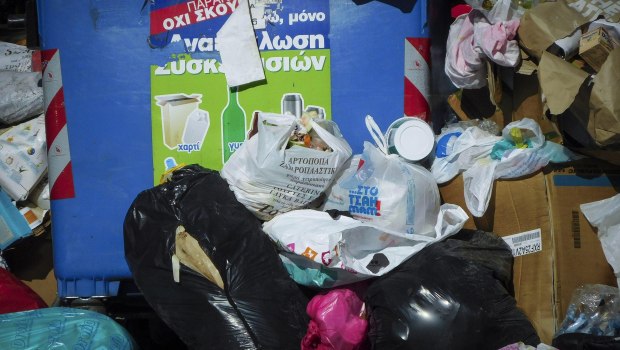Areios Pagos: For revenge porn there are no mitigating factors
Source: ProtoThema English
A 22-year-old student, in order to take revenge on his fellow student because she ended their relationship, uploaded to a pornographic site videos of their sexual encounters, resulting in his conviction. The Areios Pagos not only upheld his sentence but also rejected his request for recognition of three mitigating factors, in addition to the one already granted.
They had a romantic relationship during their studies and cohabited for three months. However, after three years, the relationship ended on her initiative. During their cohabitation, the 22-year-old recorded their sexual encounters with her consent and stored them on his computer. He had assured her that no third party would ever see these videos, which concerned their sexual life and “contained sensitive personal data related to her sexual life.”

He promised to delete them
When they broke up at the end of 2015, the student demanded that her ex delete the videos from his computer, and he assured her he had done so. However, not only did he fail to delete them, he even tampered with and edited them.
He then tried to reconnect with her, “often in an aggressive and violent manner.” In early 2016, the 22-year-old went to her house, broke the door, and began threatening and insulting her. After that incident, she started avoiding him and would not answer his calls.
He then began sending her threatening messages: “If you don’t talk to me, I will post online the audiovisual material I have kept.”
When she did not give in, he carried out his threat, uploading the videos to a pornographic site, “depicting her engaging in sexual acts, accessible to a large number of visitors to that site, since within just 8 hours of posting, the video had 253 views.”
Sharing with her friends
He did not stop there: “in order to take revenge on her for ending their relationship and for refusing to reconcile, he also shared the videos with her friends.”
At the same time, he posted them on Facebook and sent her the message: “With love from me to …”
She messaged him asking to take the videos down. He replied: “If … doesn’t respond to me, I don’t intend to take it down.”
With no way out, she sent an email to the pornographic site explaining that she was the person depicted, that the material was posted by a third party out of revenge and without her consent, and requested immediate removal.
The same day she went to the Cybercrime Unit of the Hellenic Police and filed a report. The investigation showed that the electronic traces led back to the 22-year-old’s mother.

“Pretextual apology”
Once fully exposed, the student claimed he was “under intense emotional strain and poor psychological condition.” He even sent her a registered letter apologizing and saying he felt deep shame for what he had done.
However, the judges deemed the apology “pretextual,” since “his subsequent behavior demonstrated anything but remorse, and was done for the sole purpose of obtaining the most favorable judgment possible.”
The 22-year-old was found guilty of “the criminal act of transmitting/disclosing personal data to unauthorized persons.”
The judges held that “he processed her personal data, which he had originally obtained legally, but used for a different purpose than the one she had consented to.” Thus, he committed the “crime of transmission and disclosure to third parties of a file containing sensitive personal data.”
The ruling emphasized that by “failing to delete the archive system containing the videos and keeping it on his computer, an act which (processing) is illegal, since it was done without right – the girl had not consented to its retention (only to its creation), on the contrary, she demanded its deletion, and did not consent to its posting online.”
He was sentenced by the Athens Three-Member Court of Appeal to 12 months in prison with a three-year suspension, after being granted the mitigating factor of youthful age.
Nevertheless, he appealed to the Areios Pagos, requesting the annulment of the appellate ruling. Additionally, he sought recognition of three further mitigating factors in order to reduce his sentence. Specifically, he asked that it be recognized that:
- “Up until the time of the crime, he had lived an honest personal, family, professional, and social life,”
- “He showed sincere repentance and sought to remove or lessen the consequences of his act,” and
- “He behaved well for a relatively long period after his act.”
The Supreme Court justices, however, disagreed and rejected all his claims and his request for additional mitigating factors as unfounded.
Ask me anything
Explore related questions
The original article: belongs to ProtoThema English .




